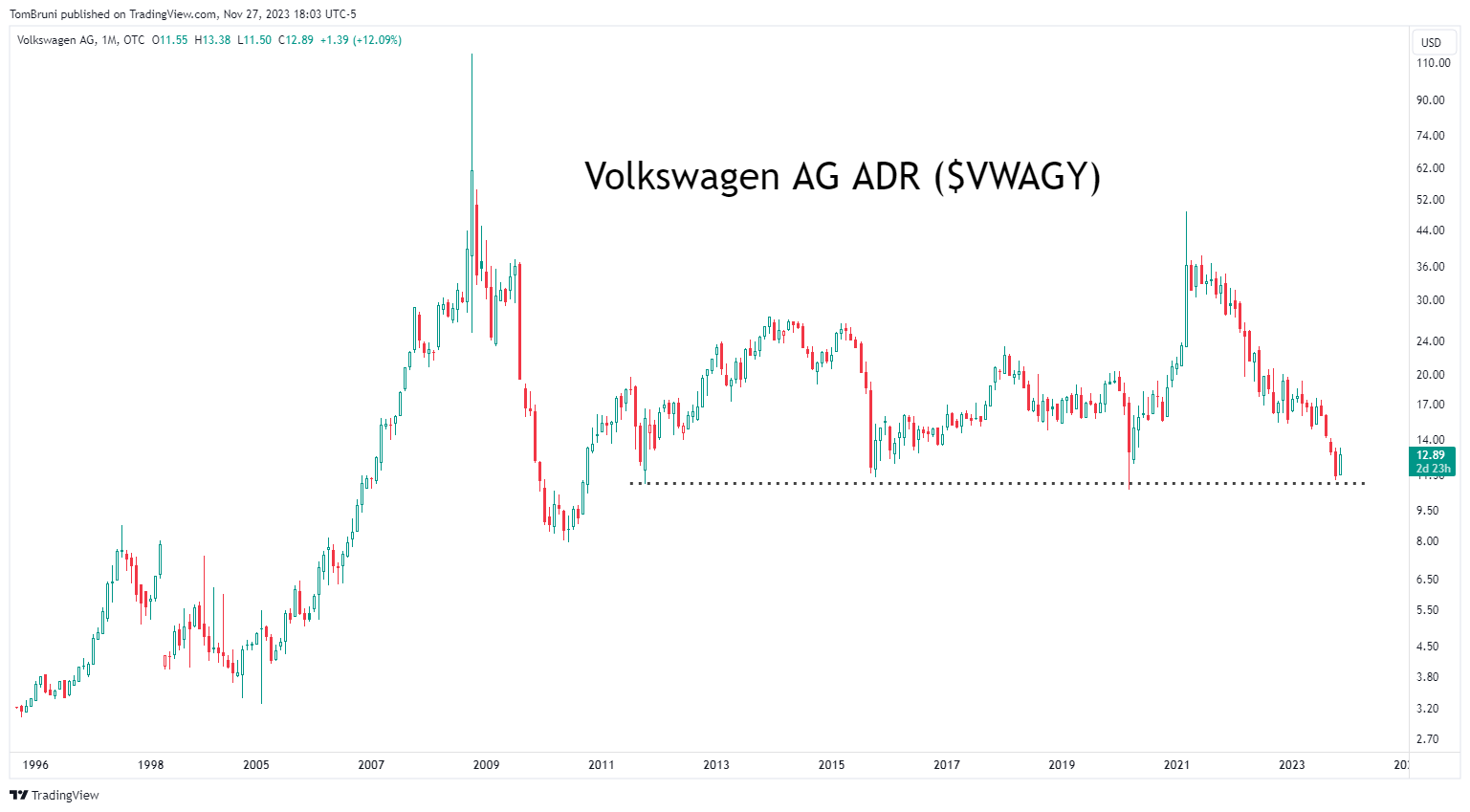It’s been a rough year for automakers, which continued today with Germany’s Volkswagen. 😨
The automobile company owns several brands, including Porsche, Audi, and its original brand, Volkswagen. However, the company’s CEO told staff at an internal meeting that its original brand is “no longer competitive” and that cuts are coming.
Like others in the industry, the parent company VW Group has been working to improve the financial performance of the Volkswagen brand to help fund its shift toward electric vehicles. Although the VW brand had the highest sales volumes, its operating profit margins remain well below its other mass-market brands. 🔻
CEO Thomas Schaefer said, “With many of our pre-existing structures, processes, and high costs, we are no longer competitive as the Volkswagen brand.”
VW Group hopes to raise the VW brand’s return on sales (ROS) from last year’s 3.6% to 6.5% by 2026, primarily driven by cost-cutting and better differentiation in the marketplace. The company will look to take advantage of its workforce’s “demographic curve,” using early or partial retirement agreements to trim its bloated staff levels. 🔺
Overall, the VW Group is looking to implement a nearly $11 billion savings program, which will have to include broad measures beyond headcount cuts. And it certainly needs to figure it out soon if it’s going to sustain the necessary support for its electric-vehicle push.
Its U.S.-listed ADR is trading back at more than 13-year lows as investors await executives’ plan to balance profitability and an electric-vehicle transition. 📉

Additionally, shares of Albermarle, the largest U.S. provider of lithium for electric vehicle batteries, fell another 6% today. The Global X Lithium and Battery Tech ETF ($LIT) continues its precipitous decline as consumers move away from electric vehicles, causing its inventories to climb far more than anticipated. 🪫
If the transition to electric vehicles wasn’t already difficult enough for traditional automakers, increased labor costs and lower consumer affordability have put additional pressure on all of the industry’s players. 🙃
